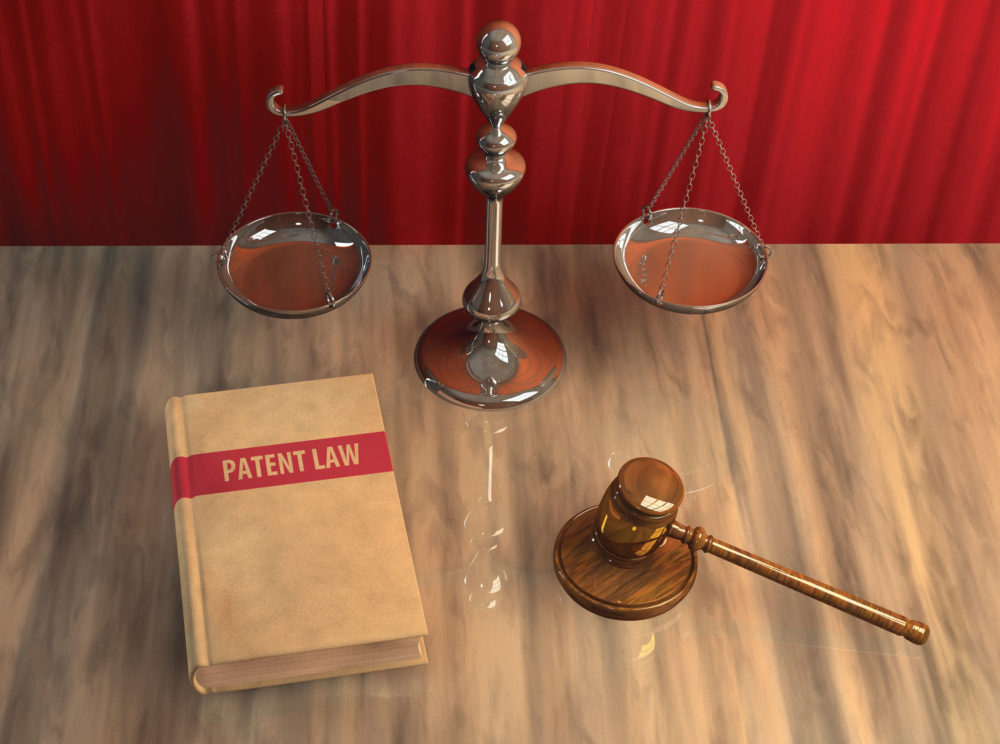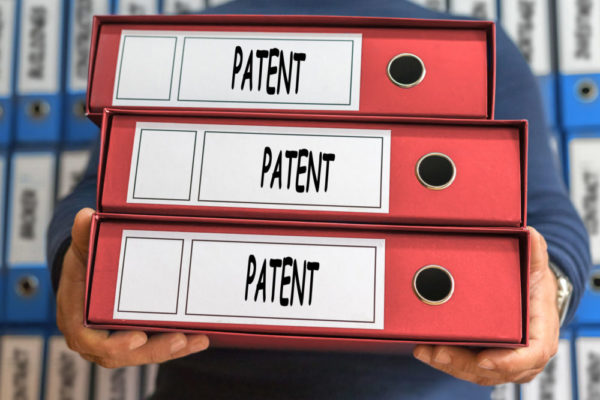In order to prevent patent-licensing problems, standard-setting organizations (SSOs) have created fair, reasonable, and non-discriminatory (FRAND) terms to ensure that standard-essential patent (SEP) owners will get patent benefits without unfair bargaining. Earlier this year, as patent holders are generally free to charge the users of their patents, the developers of technical standards have agreed to license the former’s SEPs to manufacturers of standardized products at royalty rates that are fair, reasonable and non-discriminatory.
Significant PTAB Practice Updates: The Future of Patent Law
Iwork OJT2022-10-03T02:35:59-04:00In 2019, the United States Patent and Trademark Office (USPTO) continued implementing policy initiatives of Director Iancu that may significantly affect trial practice before the Patent Trial and Appeal Board (PTAB). Some of the developments in 2019 include expansion of the PTAB’s discretion to deny petitions, a new claim amendment process, and the issuance of the first precedential opinions from the recently created Precedential Opinion Panel. In addition to the Director’s initiatives, in Arthrex v. Smith & Nephew, a case whose implications are still being sorted out, the Court of Appeals for the Federal Circuit announced a judicial fix to a constitutional defect in the appointment of PTAB judges.
Trends and Developments in the Defend Trade Secrets Act in 2020: What You Must Know and Do
Iwork OJT2022-10-03T03:19:42-04:00In this LIVE Webcast, a seasoned panel of thought leaders and professionals brought together by The Knowledge Group will provide the audience with an in-depth analysis of the recent trends and developments surrounding the Defend Trade Secrets Act (DTSA) as it continuously creates a dramatic change in the trade secret litigation landscape. They will discuss notable court rulings and expose the ever-evolving impact of the recent trends and updates in this area of law. Speakers will also present practical tips and strategies in leveraging the potentials of utilizing the DTSA as an effective tool in enforcing intellectual property rights.
Artificial Intelligence in 2020: Practical Guide to Mitigate Risks and Avoid Pitfalls
Iwork OJT2022-10-24T04:30:00-04:00As Artificial Intelligence (AI) continuously gain popularity among firms and businesses, the number of legal risks and threats surrounding this industry significantly increases. AI stands out as a transformational technology in today’s digital generation. Businesses are increasingly looking for ways to put AI technologies to work to increase their productivity, profitability and business results. However, while there are many listed AI benefits, there are also certain roadblocks and disadvantages to keep in mind.
Trade Secrets Management: Exploring Best Practices in the Remote Work Environment
jasper.alamares2023-01-02T21:51:22-05:00Trade secrets are considered as one of the most valuable assets in any company and the need to effectively manage and protect these must be prioritized at all times. However, as companies continue to grapple with remote work arrangements, taking reasonable management and precautions for trade secrets has become more complex and challenging.
Apportionment of Patent Damages: What You Need to Know and Do in 2020
Iwork OJT2022-10-24T05:28:03-04:00Apportionment is an important consideration when quantifying damages in patent litigation, both in lost profits and reasonable royalty cases. In Exmark v. Briggs & Stratton Power Products Group, the Federal Circuit stated “apportionment can be addressed in a variety of ways, including ‘by careful selection of the royalty base to reflect the value added by the patented feature [or] . . . by adjustment of the royalty rate so as to discount the value of a product’s non-patented features; or by a combination thereof’” and “[t]he essential requirement is that the ultimate reasonable royalty award must be based on the incremental value that the patented invention adds to the end product.”
National Developments in Trade Secret Misappropriation: Trends in DTSA Litigation Post Enactment and Approaches to Damages and Best Practices
Iwork OJT2022-10-28T01:45:08-04:00Trade secrets are among the most valuable assets for businesses. Because of their significance, corporations have continued to increase protections over their confidential materials, and the legal landscape has evolved, including passage of the federal Defend Trade Secrets Act. However, misappropriation cases still abound.
A Practical Guide on the New PTAB Trial Practice: What You Should Know and Do
Ahmed Zidan2022-10-28T02:36:24-04:00Policy changes continue to reshape trial practice before the Patent Trial and Appeal Board (PTAB). Some of the recent developments include expansion of the PTAB’s discretionary denial power, potential investigation of PTAB denials by the Congress, and judicial review of PTAB decisions following Thryv v. Click-to-Call.
Obviousness-Type Double Patenting (ODP): Demystifying Recent Trends and Significant Court Rulings
Iwork OJT2023-01-18T01:10:06-05:00In the U.S. and Canada, courts have designed the doctrine of obviousness-type double patenting (ODP) to prevent inventors from gaining an unjust extension of their patent rights by obtaining patent on the obvious variants of an invention. By rejecting and invalidating ODP, courts prevent the manipulation of issue dates and patent rights by patentees.
Patent Damages Calculations in 2021: Trends, Tactics, and Best Practices
Joenel2022-04-05T02:53:15-04:00Calculating patent damages is no small feat. Foremost, practitioners need to establish a credible calculation that aligns with the circumstances surrounding a case. At the same time, this calculation should be clear in a way that triers of fact can understand and accept. Adding to the complexity are emerging litigation issues that constantly mold and remold the procedure. Thus, it is crucial that practitioners utilize applicable damages calculation methodologies cautiously.
The Hatch-Waxman and IPR Strategy in Light of Recent Case Decisions: Addressing Emerging Issues
Iwork OJT2021-06-25T02:29:10-04:00Inter partes review (IPR) proceedings have been an attractive ground for drug companies seeking to challenge the patentability of pharmaceutical products. The IPR allows challengers to maximize the streamlined process of the Patent Trial and Appeal Board (PTAB) while also taking advantage of the benefits provided by the Hatch-Waxman Act. Given this backdrop, the number of challenges utilizing the IPR process is predicted to continuously climb this year and beyond.
Effective Intellectual Property Damages Calculation: A Comprehensive Guide
Iwork OJT2021-08-23T02:57:30-04:00Effective calculation of intellectual property damages is a crucial factor in any IP litigation. However, with significant court cases constantly shaping the process, several risk issues including apportionment analysis, royalty base issues, and damages calculation methodologies must be carefully considered to avoid unwanted risks and pitfalls.
Managing Patent Infringement Cases After the Duncan Parking Technologies Decision: Best Practices and Strategies
Iwork OJT2021-04-30T05:12:56-04:00In its 2019 Duncan Parking Techs., Inc. v. IPS Group, Inc. ruling, the Federal Circuit overturned the Patent Trial and Appeal Board's (PTAB's) decision which held that '310 patent claims were not unpatentable as anticipated under 35 U.S.C. § 102(e) in a decision juxtaposing inventorship and available prior art. Refusing to apply the doctrine of equivalents, the Court also ruled that Duncan’s alleged single-space parking meter infringement did not function in the same way as IPS' claimed invention. It further affirmed the summary judgment of noninfringement granted by the district court.
Trade Secret Protection for AI: A Comprehensive Guide
Iwork OJT2021-05-04T08:22:29-04:00Today’s modern organizations are heavily investing in artificial intelligence (AI) to remain competitive and relevant. However, along with the significant opportunities offered by AI-related inventions, is the challenge of effectively protecting intellectual property (IP) in this space. Seeing patents as a difficult path to take, businesses are now looking toward trade secret protection.
What’s In and What’s Out in PTAB AIA Trial Proceedings
Iwork OJT2021-05-10T03:28:58-04:00Recent and emerging developments continue to reshape the Patent Trial and Appeal Board’s (PTAB’s) America Invents Act (AIA) trial landscape. The Board’s increasing reliance on 35 U.S.C. § 314 discretionary denial is under attack in Google v. Uniloc and by some requests for a congressional investigation. One of the most notable cases is Facebook v. Windy City, which settles the issue of same-party or new issue joinder for inter partes reviews (IPRs).
















